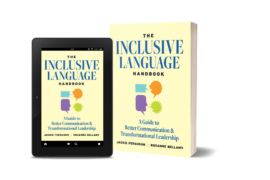The International Day of Remembrance of the Victims of Slavery and the Transatlantic Slave Trade is an observance day occurring every 25th of March, according to the United Nations (UN) resolution in December 2007.
On this day, people from all walks of life honor and remember the millions of people captured in Africa, transported by sea, and sold as slaves in Europe and the Americas. This global commemoration also reminds people about continuing prejudice and racism in our communities, relics of the slave trade.
What is the Background of International Day?
According to historical accounts, slave traders transported 15-20 million people to Europe, Central, and South America for over a period of 400 years. Many people see these centuries of slavery as one of the most tragic chapters in human history. The transatlantic slave trade was triangular because it involved West Africa, Europe, and the Americas, which form a triangle shape on the globe. Some African traders captured people and sold them to Europeans, who in turn ‘shipped’ the slaves to South America, Britain, and more. We’re using the word ‘shipped’ because slave traders viewed the people they captured as cargo or business goods.
Millions of these captured and kidnapped people never arrived at the destinations of their oppressors. They died on the way. Others died soon after arrival. The survivors found themselves as enslaved workers on rice fields, sugar plantations, farms, mines, and more. Many people also became enslaved domestic servants.
Numerous countries around the globe owe significant amounts of their present wealth to enslaved African people. For instance, historians point out that Britain’s national wealth grew exponentially during the slave trade period due to cheap and free labor.
Britain passed the first law abolishing slavery in 1807, and before the end of 1815, Spain, the Netherlands, Portugal, and France had followed suit, due to mounting pressure from Britain and others. Five years later in 1820, The United States banned slave trading, and forty-five years after that in 1865, they finally took the bolder step of abolishing slavery with the Thirteenth Amendment to the U.S. Constitution. It is important to note, however, that the enslaved people of African heritage whom the law thereby “freed” still lived as subjugated citizens, experiencing both de facto and de jure discrimination. And, due to numerous loopholes in the amendment, forms of slavery still existed legally and with federal approval.
How To Honor This Day
Each year, the UN announces a theme for International Day of Remembrance to help people engage in meaningful conversations and activities. “Breaking the Silence, Lest We Forget” was the theme in 2008. In 2015, the theme was “Women and Slavery.” On this observance day, the Director-General of UNESCO encourages all Member States to hold celebrations through their Ministers of Culture. Businesses and organizations are also encouraged to participate.
To remind people of the importance of this day, the UN also erected a memorial to honor the victims of the transatlantic slave trade. It’s called the Ark of Return, designed by Rodney Leon, an American architect of Haitian heritage, and unveiled in 2015.
Your organization can participate in conversations about this day by sharing additional learning resources with your team, like the Ark of Return video above.
Why Should Employees Acknowledge the Day Within Their Organizations?
The International Day of Remembrance of the Victims of Slavery and the Transatlantic Slave Trade is a reminder of the global impacts of racism and prejudice and how they continue in the systems and structures of present-day society. In sum, the International Day of Remembrance offers your organization and its employees a chance to create a more inclusive culture by providing everyone an equal opportunity to thrive.
Amen Mpofu is a zestful SEO writer, specializing in life-changing content. He puts you front and center of his articles.






